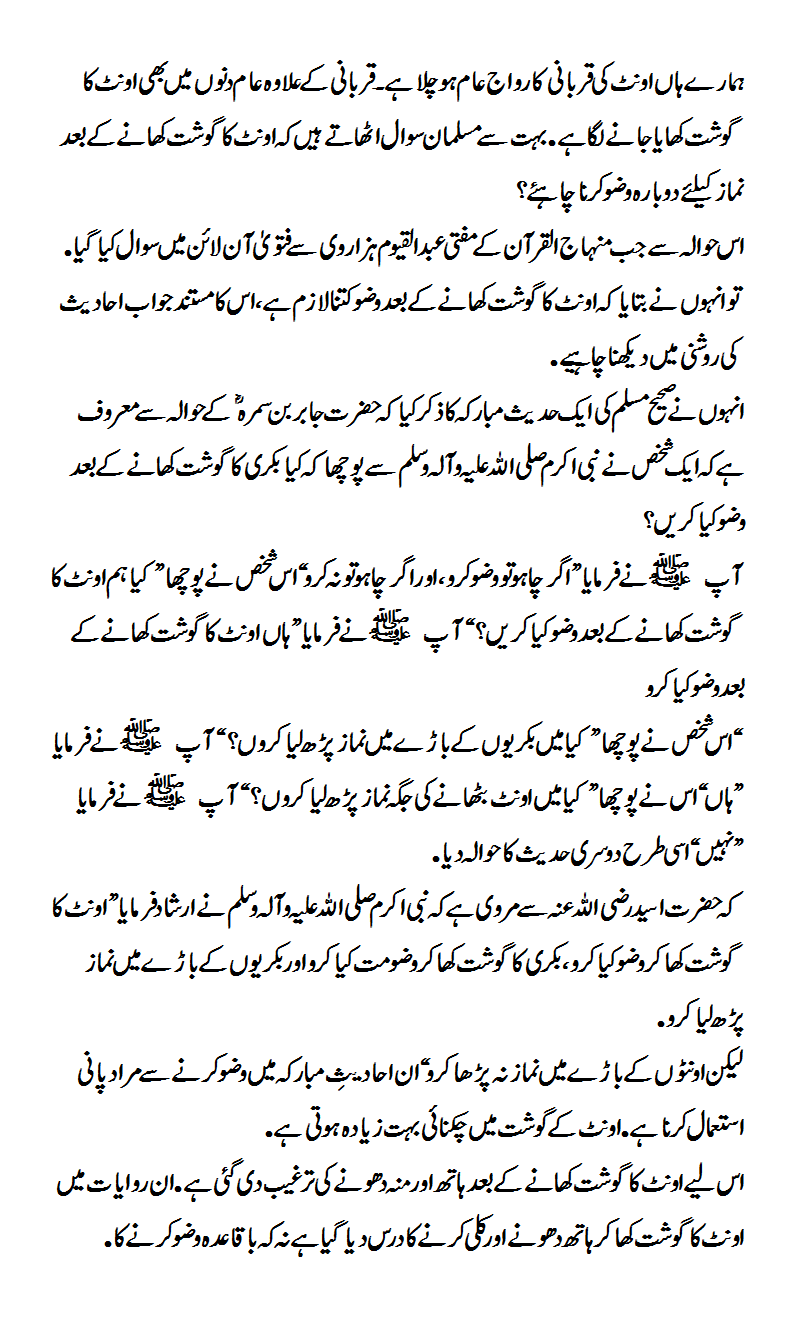The correct view is that the one who eats the meat of a camel old or young, male or female, cooked or raw has to do wudoo. There are several reports which serve as evidence (daleel) for this:
- The hadeeth of Jaabir: the Prophet (peace and blessings of Allaah be upon him) was asked, Should I do wudoo after eating camel meat? He said, Yes. The person said: Should I do wudoo after eating mutton? He said, If you wish.
(Narrated by Muslim, 360).
The hadeeth of al-Baraa: the Prophet (peace and blessings of Allaah be upon him) was asked about eating camel meat. He said, Do wudoo after eating it. He was asked about mutton, and he said, Do not do wudoo.(Narrated by Abu Dawood, 184; al-Tirmidhi, 81. Classed as saheeh by Imaam Ahmad and Ishaaq ibn Raahawayh).
The view of those who do not regard it as obligatory to do wudoo after eating camel meat is based on several points, such as:
- This ruling is mansookh (abrogated). Their evidence (daleel) is:
The hadeeth of Jaabir; the last of the two commands from the Messenger of Allaah (peace and blessings of Allaah be upon him) was that there was no need to do wudoo after eating food that had been touched by fire.(Narrated by Abu Dawood, 192; al-Nisaai, 185).
But this does not refute the specific meaning of the hadeeth quoted above from Saheeh Muslim.
Moreover, there is no evidence here of anything being abrogated, because they asked whether they should do wudoo after eating mutton, and he said, If you wish.
If this hadeeth were abrogated, the ruling on mutton would also be abrogated. The fact that he said, If you wish indicates that these ahaadeeth came after the hadeeth of Jaabir.

In cases of abrogation there must be evidence that what is being abrogated came first chronologically, and there is no such evidence here.
Moreover, the hadeeth of abrogation is general in meaning, but this hadeeth (about camel meat) is more specific, and thus excludes (camel meat) from the general ruling.